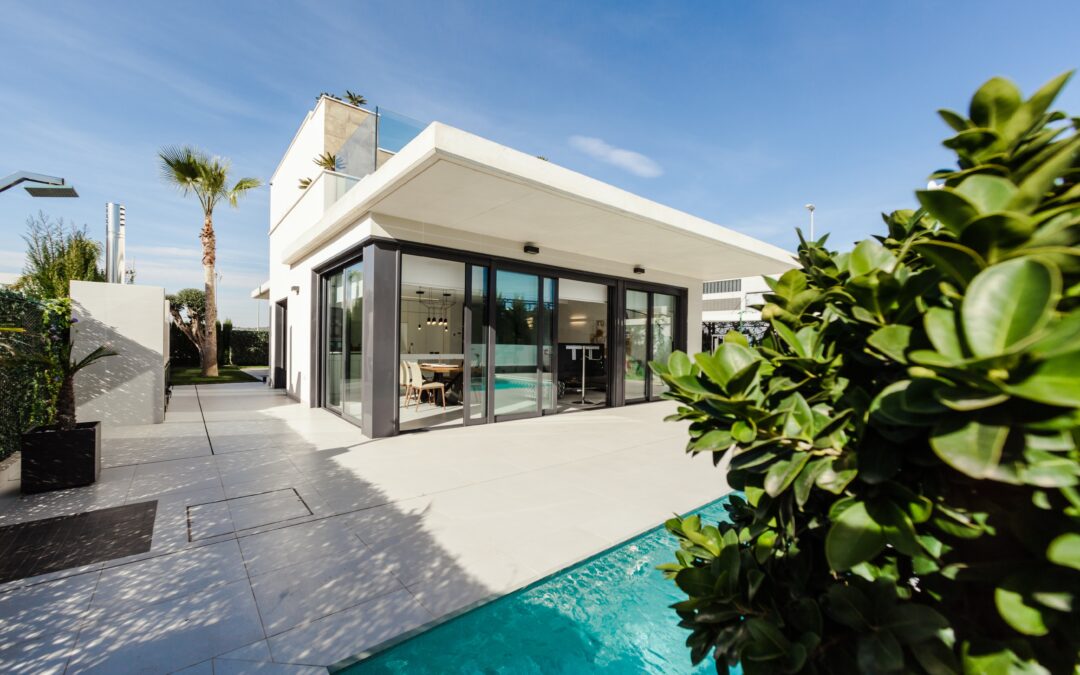Buying your first home is a momentous occasion that ought to be celebrated. However, there are many errors that first-time buyers can make, particularly when the process is so driven by informed decisions. To help you successfully purchase your first property, here are five common first time home buyer mistakes you should avoid.
Taking that first step onto the property ladder is an outstanding achievement, and likely the start of an exciting chapter in your life. It’s a process fuelled with emotion, and sometimes these emotions can get the better of first-time buyers. Each decision you make needs to be done with clear judgment, in order to celebrate your first home without any damaging consequences or worries, What Are The Five Most Common Mistakes Made, and How Can I Avoid Them?
#1 Are You Really Ready to Become a Home Buyer?
Perhaps the biggest mistake when buying a first home is the urge to rush into the process without making any financial considerations. In order to ensure the process goes smoothly, particularly relating to the mortgage aspect, you need to check your credit report.
You risk your mortgage not being approved or the sale collapsing if you have any outstanding bad credit, such as not paying off old credit cards. Not having a grasp on your credit report can be problematic when applying for loans and mortgages in later life. You can mitigate this problem by checking up on your credit report, and ensuring any payments are made on time. Having a good credit report, in addition to budgeting for the entire process, is the first step to knowing you are ready to become a homebuyer.
#2 Choosing The Wrong Mortgage Lender
Mortgages are typically the financial foundations from which many first time home buyers are able to fund their first home. There are a variety of mortgage options and even more mortgage lenders to choose from, but not every first time buyer lands the best deal for them.
As tempting as it may seem to use your current bank as your mortgage provider, you could be spending more on your mortgage than if you use a competitor.
There are many important factors to consider when it comes to selecting your mortgage, not just the interest rate. You need to find a mortgage that is relevant to your circumstances, whilst subjecting the terms and conditions to fine scrutiny. Some loan providers will have differing stances on selling your home before your payment term has come to an end, particularly relating to early pre-payment penalties.
In order to find the best mortgage lender and rates, you will need to carry out research and shop around. It may seem like a time-consuming process by speaking to many different lenders, however, this is the best way to avoid choosing a lender with rates that do not reflect your property or your circumstances.
#3 Not Looking at The Bigger Picture
It’s remarkably easy to fall in love with a house we spot when scrolling endlessly through online property portals. The marketing pictures can draw you in, and the carefully crafted listing description further entices you with the potential for each room.
But when you look at the bigger picture, it isn’t just a property that you are buying into. It’s the location as well. Being part of the local community.
Buying your first home is a significant financial commitment, and you will want to make sure that all the factors to be able to enjoy it are there. You may very well purchase what you consider to be your dream home, but have you factored in the external components that come with it?
What will your neighbours be like? Is there a high crime rate in the area that could put you and your property at risk? What about the local amenities such as shops, schools, and employment opportunities? Are they within a suitable distance to your criteria?
The key to avoiding this mistake is simply by carrying out research prior to making any commitments. Visit the area at different times of the day to get a feel for how busy/quiet it is. Speak with neighbours where possible, and check out the nearest amenities to see if the location of the property is convenient enough for your needs.
#4 Do You Know The True Condition of The Property?
There is more to buying your dream home than the desirable presentation displayed for marketing purposes. When looking to buy your first property, you need to be prepared for the possibility of unearthing potential problems.
Considering the sums of money you will be putting down to become a home buyer, unwanted nasty maintenance costs are the last thing you will want to face when getting the keys to your home.
Rushing into buying your first home can mean overlooking serious outstanding maintenance problems, such as unforeseen structural problems, faulty wiring, or issues with the plot of land the property itself resides on.
To avoid buying a property plagued with issues, you should look to secure a pre-sale inspection. This will give you a good indication of how much work is required on the property, if any at all.
#5 Have You Budgeted Properly?
It cannot be emphasized enough how much of a financial dedication buying your first home is. Aside from the outright price of the property, there are a number of costs including:
-Closing costs.
-Planned renovations.
-Realtor fees.
-Basic / Essential maintenance.
Failing to budget correctly could mean that you are unable to afford repaying your mortgage in the early stages of your repayment term. If you are buying a fixer-upper property, but have no budget to allocate to any renovations, then your property could be left uninhabitable whilst you are paying the mortgage fees.
In addition, there are then the costs of being a homeowner to factor in. This includes aspects such as bills, property taxes, mortgage insurance, and homeowner insurance. Simply because you can afford to buy your first home does not mean you can afford to own your first home.
Prior to making any financial commitments at the start of the home buying process, you should carry out budget projections to cover the costs. This includes all the costs involved with purchasing the property, through to running and maintaining it, with additional contingency budgets for emergencies. Typically around five to ten percent of the overall price is an ideal foundation for having a contingency budget.





